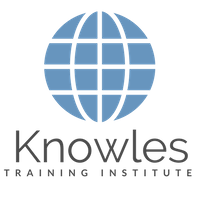Intrapreneurship Training Course In Denmark
Our corporate training course is also available in Copenhagen, Aarhus, Odense, Aalborg, Esbjerg, Randers, Kolding, Horsens, Vejle, Roskilde, Herning, Silkeborg, Næstved, Frederiksberg, Viborg, Køge, Holstebro, Slagelse, Tårnby, Ballerup, Hillerød, Rødovre, Helsingør, Holbæk, Svendborg, Sønderborg, Hjørring, Fredericia, Glostrup, Ringsted, Frederikshavn, Rønne, Nykøbing Falster, Frederikssund.
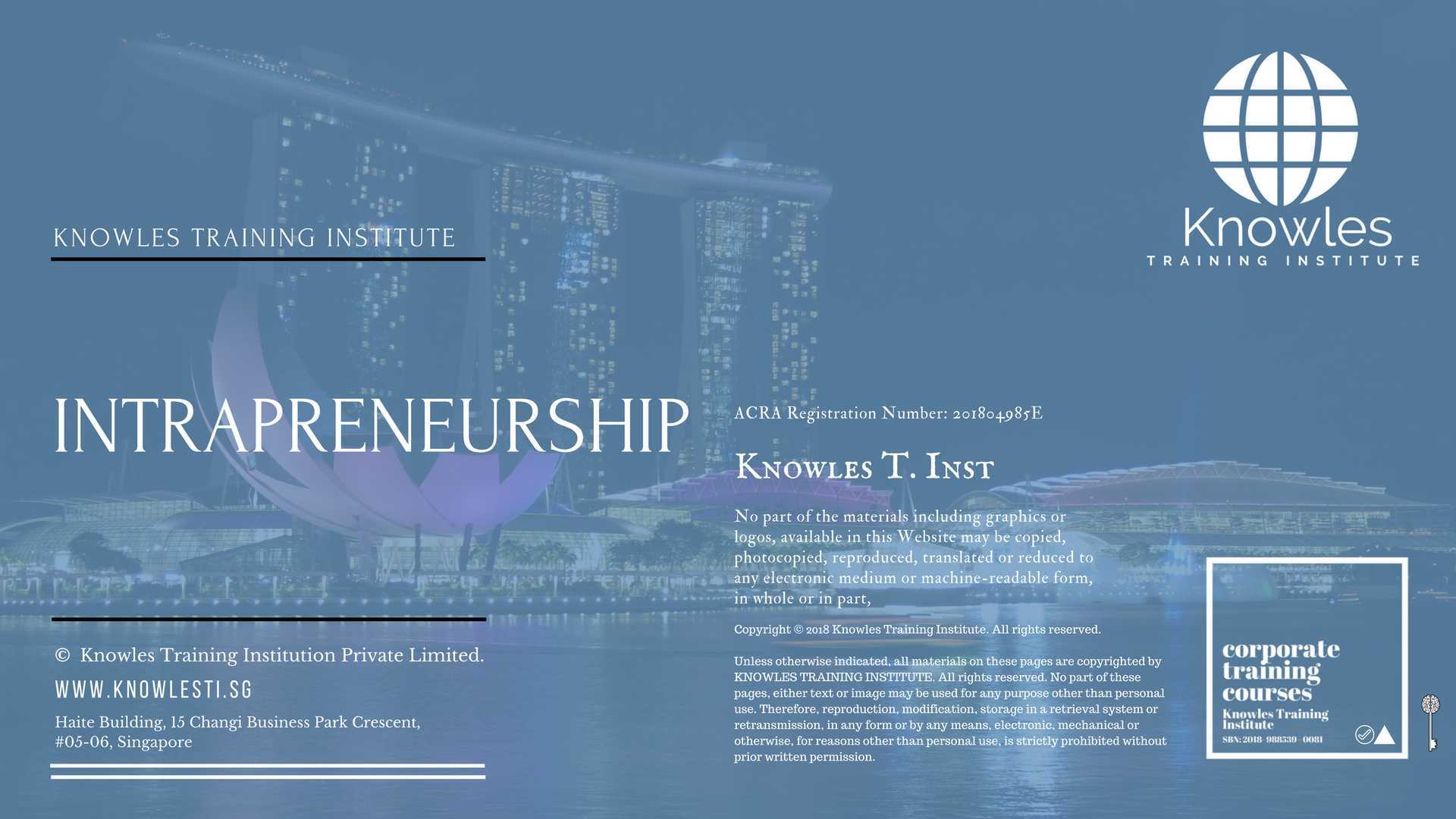
About This Intrapreneurship Training Course in Denmark
Intrapreneurship Course in Denmark
About This Intrapreneurship Course in Denmark
Intrapreneurship is a recently coined term in business which means the practice of coming up with unique ideas and implementing them within the company with the aim of advancing them through innovation and creativity. An intrapreneur is mindful of the culture and goals of the organization and must operate only within its walls. He or she is an idea pitcher and an innovative thinker who is not afraid to promote change and lead a team.
The first use of the term “intrapreneurship” can be dated back from a paper written by Gifford and Elizabeth Pinchot in 1978. Not until 1985 did the concept gain public spotlight in the TIME magazine article entitled “Here come the Intrapreneurs”. Over the years, it has evolved into a practice sought by startup companies and entrepreneurs. Nowadays, intrapreneurship is not only encouraged in a company, but there are those which are offering intrapreneurship programs to get ahead of the competition. It is also a modern field where millennials are being massively recruited since they provide new insights into problem-solving cases and creative ideas.
Intrapreneurship indicates employee initiatives in organisations to try something new, without being required to do so.” Therefore, the intrapreneur concentrates on creativity and innovation, and converts an idea into a profitable venture, while working within the company’s conditions. Thus, intrapreneurs are private entrepreneurs who grasp the goal of the business. Intrapreneurship is an instance of motivation through job design, either informally or formally. Workers, such as marketing executives or perhaps those engaged in a particular project within a larger company, are encouraged to behave as entrepreneurs, even though they have the resources, capabilities and security of the larger company to draw upon. Seizing a little of the changing nature of entrepreneurial management (trying things until learning from failures, successful attempting to conserve resources, etc.) adds to the potential of an otherwise static organisation, without exposing those workers to the risks or accountability usually associated with entrepreneurial failure.
One more characteristic of intrapreneurs is their flexibility and courage to think outside of the box, which enables them to work on ideas that may shift strategic direction. Even though several managers are fearful of revolutionary changes, they are often the only way to help companies grow. This is illustrated by Wipro in India, a tiny vegetable business that ended up being a software outsourcing company. Another perfect example is Tony Hsieh of Zappos, who began as a commercial footwear vendor and became the CEO of Zappos, which has developed into an online customer experience organisation.
Intrapreneurs are both employees and leaders of large organisations that act similar to entrepreneurs in terms of, examples, self-motivation, creativity and pro-activity. Pinchot claims that while intrapreneurs must be leaders, they differ very much from managers. Strong leadership skills are needed to encourage teams and to persuade others to follow and execute their ideas. Leadership abilities are also essential to support quick decision making under uncertainty. Managers, on the contrary, consider more risks than uncertainty and often work within established patterns. Furthermore, traditional managers get their power from the above; intrapreneurs, by contrast, begin without the notice of the same degree of power.
Intrapreneurs can hunt for opportunities and shape them into high-potential innovations through teamwork and with path to corporate resources. This implies the right conditions of great leadership, communication and the appropriate environment to support creativity; these are essential for entrepreneurial results to take place). The win-win position of intrapreneurial motivation pointing to corporate benefits is considered idealistic by some. According to Smedley), only a few companies know how to encourage intrapreneurs. Some examples are listed below.
This course will teach the participants the concept of intrapreneurship and the characteristics needed of an intrapreneur. It will also train them to apply the concepts to their personal projects and company situations.
Who Should Attend This Intrapreneurship Course in Denmark Workshop
This Intrapreneurship Course in Denmark workshop is ideal for anyone who would like to gain a strong grasp and improve their Intrapreneurship.
All Staff Within An Organisation
Managers
Team Leaders
Executives
Assistants
Officers
Secretaries
Group Size For This Intrapreneurship Training Program in Denmark
The ideal group size for this Intrapreneurship course in Denmark is:
Minimum: 5 Participants
Maximum: 15 Participants
Course Duration For This Intrapreneurship Skills Course in Denmark
The duration of this Intrapreneurship Course in Denmark workshop is 2 full days. Knowles Training Institute Denmark will also be able to contextualised this workshop according to different durations; 3 full days, 1 day, half day, 90 minutes and 60 minutes.
2 Full Days
9 a.m to 5 p.m
Intrapreneurship Course in Denmark Benefits
Below is the list of course benefits of our Intrapreneurship course in Denmark
- Encourages the participants to adopt intrapreneurial skills in the workplace
- Eliminates the possibility of hindering the overall growth of a company
- Updates the company on the latest, most innovative ideas or products
- Encourages the participant to be welcome to challenges that can increase his/her potentials
- Teaches the participant to transition intrapreneurial ideas to entrepreneurial products
- Expands the participant’s network of connections and resources
- Increases the company’s productivity and efficiency, leading to increased revenues
- Boosts the company’s reputation, attracting more intrapreneurs
Intrapreneurship Course in Denmark Objectives
Below is the list of course objectives of our Intrapreneurship course in Denmark
- Define what is an intrapreneur
- Describe the characteristics of an intrapreneur
- Define the theories involved regarding the concept of intrapreneurship
- Understand the importance of intrapreneurship in a company
- Determine the people involved in an intrapreneurship
- Enumerate the differences between intrapreneurship and entrepreneurship
- Determine the process of intrapreneurship leading to entrepreneurship
- Define the Four Generic Models of Intrapreneurship
- Determine the correct model to use in a work setting
- Discuss the steps involved in an intrapreneurial process
- Develop the intrapreneurial skills of the employees
- Promote intrapreneurship in the workplace
- Discuss the challenges that can be faced in adopting intrapreneurship
- Describe an ideal intrapreneur-friendly workplace
Course Content For This Intrapreneurship Training Course in Denmark
Below is the list of course content of our Intrapreneurship training course in Denmark
- What is an intrapreneur?
- What are the characteristics of an intrapreneur?
- What are the theories surrounding the concept of intrapreneurship?
- Why is intrapreneurship important to a company?
- Who are the people involved in an intrapreneurship?
- What is the difference between intrapreneurship and entrepreneurship?
- How can intrapreneurship lead to entrepreneurship?
- The Four Generic Models of Intrapreneurship
- How to select and apply the right model
- What composes an intrapreneurial process?
- How to develop an employee’s intrapreneurial skills
- How to promote intrapreneurial skills in the workplace
- What are the challenges being faced in intrapreneurship?
- Examples of real-life stories involving intrapreneurship
Intrapreneurship Course in Denmark Value Added Materials
Each participant will receive the following materials for the Intrapreneurship course in Denmark
Intrapreneurship Course in Denmark Learner’s Guide

Intrapreneurship Course in Denmark Handouts
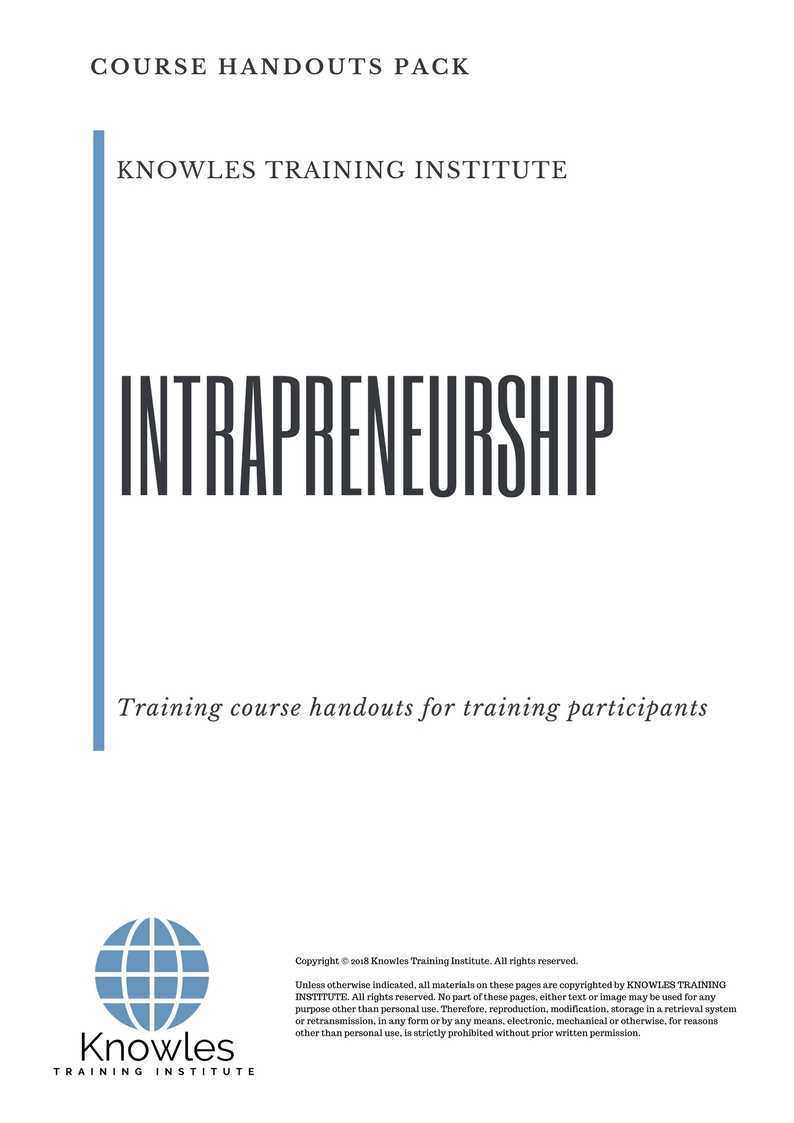
Intrapreneurship Course in Denmark PPT Slides Used During Course

Intrapreneurship Course in Denmark Certification
Each course participant will receive a certification of training completion

Course Fees For Intrapreneurship Training Course In Denmark
There are 4 pricing options available for this Intrapreneurship training course in Denmark. Course participants not in Denmark may choose to sign up for our online Intrapreneurship training course in Denmark.
- USD 679.97 For a 60-minute Lunch Talk Session.
- USD 289.97 For a Half Day Course Per Participant.
- USD 439.97 For a 1 Day Course Per Participant.
- USD 589.97 For a 2 Day Course Per Participant.
Discounts available for more than 2 participants.
Upcoming Intrapreneurship Training Course in Denmark Schedule
Contact us for the latest Intrapreneurship course in Denmark schedules:
Email: contact@knowlesti.dk
Message:
Download Intrapreneurship Course in Denmark Brochure

Request for this Intrapreneurship course in Denmark brochure. Fill up the short information below and we will send it to you right away!
- Post Training Support: A vast majority of training does not have any effect beyond 120 days. To work, training has to have a strong pre- and post-training component. Post-training reinforcement helps individuals to recall the understanding and ask questions.
- Blended Learning: Learning does not occur in the classroom. Virtually everybody prefers distinct ways of learning. Successful learning should have a multi-channel, multi-modal strategy.
- We Understand The Industry: We’ve got a profound comprehension of the business, business design, challenges, strategy and the that our participants are in and have designed the courseware to cater to their professional needs.
- Course Content: Knowles Training Institute’s material is relevant, of high quality and provide specific learning results. Participants will leave the training course feeling as they have gained a strong understanding and will also be in a position to execute what they have learned sensibly.
- Course Development — The workshop modules follow a systematic and logical arrangement. This structure helps to ensure that the course material allows the facilitators to deliver the course in a logical arrangement. Consider the subjects as building bricks into learning, our facilitators slowly build towards a comprehensive picture of this entire topic.
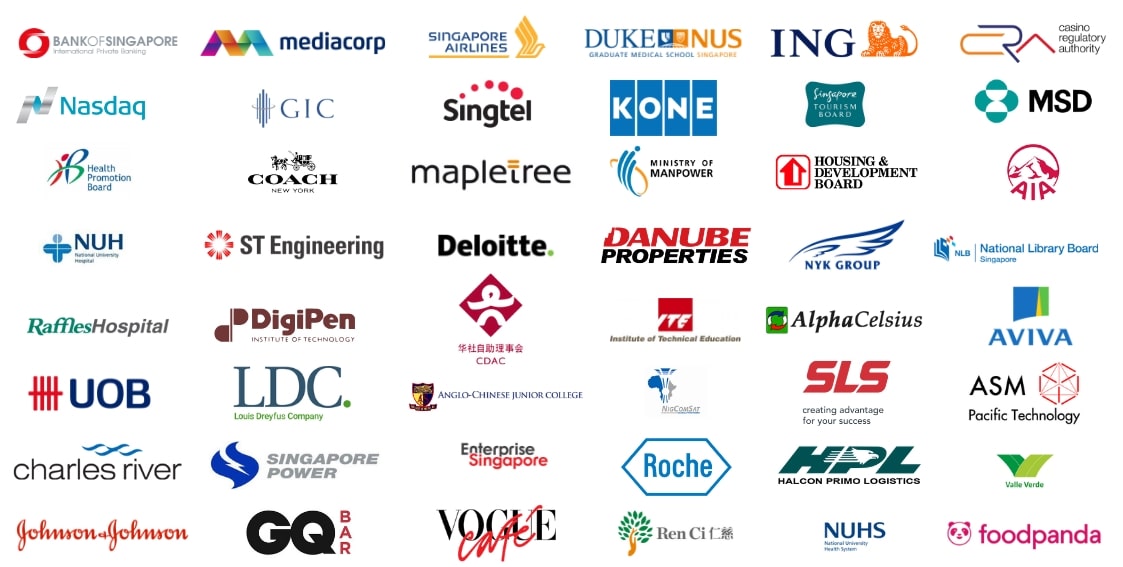

Course Enquiries
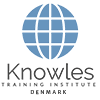
Fill up the form and we will get back to you in less than 1 working day.
Alternatively, give us a call to have one of our training consultants contact you. Our corporate training courses can be contextualized to meet your organization’s training needs. Leverage on our large pool of professional trainers and consultants for your organization’s training needs.
Email: contact@knowlesti.dk
We Guarantee 100% Privacy. We Respect Your Privacy. Your Information Will Never Be Shared.
